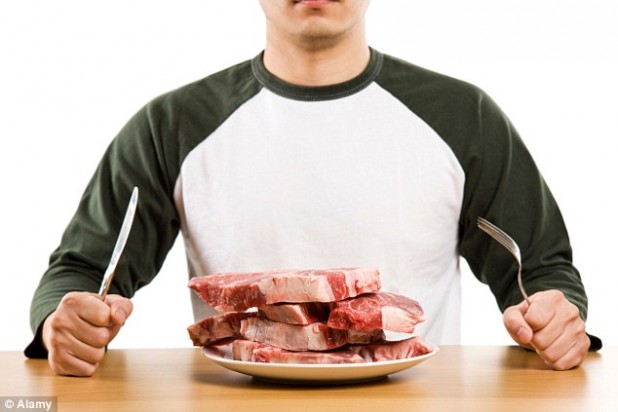In the last ten years we have become more veggie friendly and we are inclined to opt for a salad over a steak because we believe it is better for our health, right? Well that may not be the case after all, because according to recent studies, eating red meat can be very nutritious and should be eaten alongside our veggies. Many of us have reduced our red meat intake due to the perception that it may increase our cholesterol or even worse, cause cancer. Research published by Mintel, a market research organisation showed that there was a rise in people under 25 who became vegetarian or vegan last year. This may have been due to animal welfare reasons or it could have been due to health concerns. The World Health Organisation (WHO) reported that processed meat was ‘carcinogenic to humans’. And scientists at Oxford University last week said that only 2 portions of red meat per week may increase the risk of bowel cancer. However, the majority of dieticians state that red meat has beneficial nutrients.
Priya Tew an independent registered dietician said ‘Eating red meat brings a lot of health advantages to a balanced diet,’ ‘The link between eating red meat and colorectal cancer is much less compelling [than it is for processed meat] and you would have to eat far more than people currently do’. However, it is advisable to reduce your intake if you consume more than 90g a day.
Children and teenagers need red meat for their brain development because low levels of DHA and vitamin B12 can affect their mental health. A 2013 study published in the British Journal of Nutrition showed that vegans and people who reduced their meat, dairy and eggs could be deficient in vitamin B12. Red meat contains creatine an amino acid which increases muscle mass. People’s muscles shrink when they age, so it is important for them to get an adequate supply of amino acids. Dr. Carrie Ruxton, a dietician who works with the Meat Advisory Panel, said ‘Elderly people find it hard to process protein so they need high-quality dietary protein to maximise their intake. ‘The protein found in toasted cheese, for instance, is not as high quality as that found in red meat, which contains the full eight essential amino acids (which the body uses to make muscle) that your body needs.’
The National Diet and Nutrition Survey in the UK found that 50 percent of teenage girls were deficient in iron. Many young girls reduce or eliminate red meat from their diet due to the misperception that it is fattening. Iron deficiency can contribute to anaemia which causes tiredness, dizzy spells, low mood and poor concentration.
Dr Elizabeth Lund, an independent consultant in nutrition and gastrointestinal health said ‘’Iron is much more bioavailable (i.e. more easily absorbed) from meat than from vegetables or supplements.’
‘Menstruating women should consume 14.8mg iron per day from a range of foods. For other members of the population, just over 7g of iron per day is required, but even then meat can be an important source.’
A report in 2014 from the Journal Annals of Internal Medicine stated that ‘Current evidence does not clearly support cardiovascular guidelines that encourage high consumption of polyunsaturated fatty acids [the type in fish, nuts and seeds] and low consumption of total saturated fats [the kind in red meat].’ People have often been advised by their general practitioners to avoid eating red meat if they have high blood pressure, even though studies haven’t shown that it affects blood pressure. Tracy Parker, senior dietician at the British Heart Foundation, says ‘Choosing leaner cuts and using healthier cooking methods, such as grilling, means meat can be enjoyed as part of a healthy, balanced diet.’
Recent reports from the World Health Organisation (WHO) and Oxford University have found that red meat eaters had a higher risk of getting colon cancer. But John Abercrombie, a consultant colorectal surgeon from Nottingham University, said ‘The evidence of potential harm comes from research that describes an increased “relative” risk, and this is not the same as the “absolute” risk, which is what people would be affected by.’
Dr Gill Lockwood, Medical Director of Midland Fertility Tamworth said that red meat is essential for male fertility. ‘Selenium, zinc and L-Carnitine [an amino acid] are all essential factors for healthy sperm production’. ‘Many studies have demonstrated that men with selenium-deficient diets – which tend to be short on red meat, wholegrains and nuts – can see significant improvements in sperm motility, which is the swimming ability, if they take additional selenium.’ ‘As with all nutritional supplements, eating a healthy diet is better than swallowing vitamin and mineral pills.’
Eating red meat can help to delay the aging process of the brain, because it contains carnosine, an amino acid which is synthesised in animals’ muscles and brains. Scientists have discovered that patients with Alzheimer’s and Parkinson’s have lower levels of carnosine, than healthy individuals.
So bearing all this in mind, the next time you are out for lunch and reach for the ‘healthy option’ think again about what healthy means for your body.









